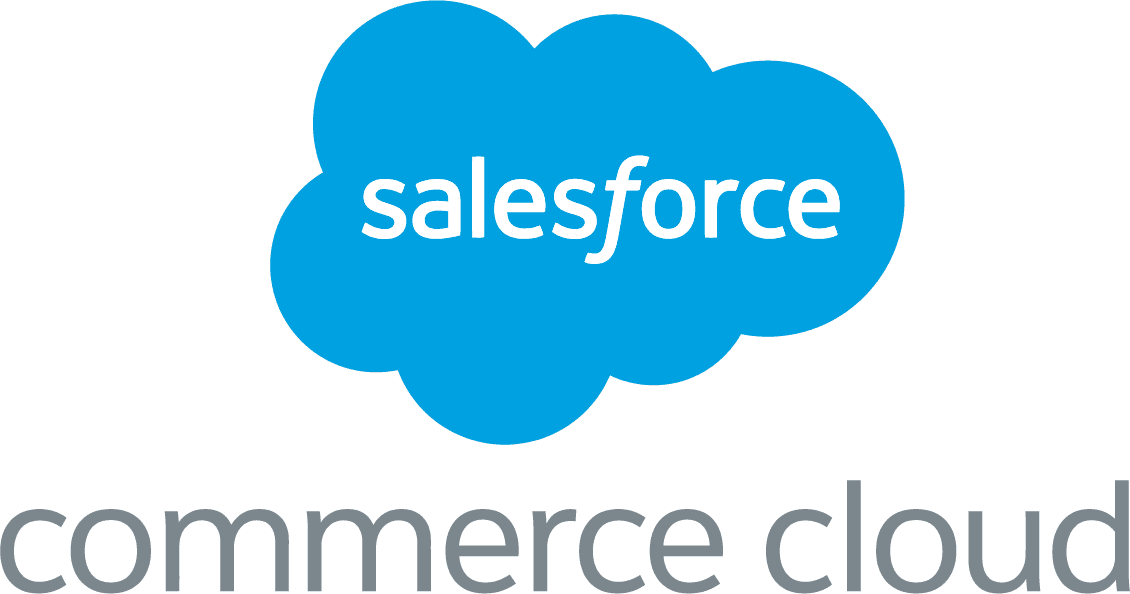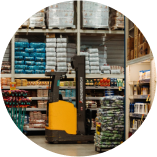Best Order Management Softwares 2024
What is an Order Management Software?
Metrics to Consider Before Buying an OMS
Best Order Management Systems
1. ShippingEasy
2. Shippo
3. Asaan Retail
3. QuickBooks Commerce
4. Finale Inventory
5. Katana
6. Brightpearl
7. Salesforce Commerce
8. Shopify
9. Jotform
Pros:
Cons:
Pricing:
10. Extensiv Order Management
11. HubSpot
12. Order MS
13. Zoho Inventory
Conclusion

Content
Best Order Management Softwares 2024
Shujaat Khan
2024-08-12
Managing orders efficiently is crucial for the success of any business, whether it's an eCommerce store, a brick-and-mortar shop, or a retailer. With numerous order management software options available, choosing the right one can be daunting.
Selecting the right Order Management Software requires understanding the needs of your business and then deciding which software is best tailored to serve those needs.
Here’s a detailed review of the leading software solutions based on their features, pros, cons, and pricing.
What is an Order Management Software?
Order Management Software is a digital tool that helps businesses track sales, orders, inventory, and fulfillment. It automates and streamlines the order processing cycle, ensuring that every step, from order placement to delivery, is managed efficiently. Crucially, an OMS minimizes errors, reduces manual work, and provides real-time insights into inventory levels and order status.
Metrics to Consider Before Buying an OMS
When choosing an OMS, consider the following metrics:
- Integration Capabilities: How well does the system integrate with your existing e-commerce platforms, CRMs, and accounting software?
- Scalability: Can the system handle your business's growth, including increased order volumes and additional sales channels?
- User-Friendliness: Is the system easy to use for your team? Does it require extensive training?
- Cost: What is the pricing structure, including setup fees, subscription costs, and additional charges for extra features or integrations?
- Customer Support: What level of customer support is provided? Is there 24/7 support available?
Best Order Management Systems
1. ShippingEasy

ShippingEasy is a popular OMS that offers seamless integration with multiple e-commerce platforms, including Etsy, eBay, Amazon, WooCommerce, and Square. It's known for its user-friendly interface and excellent customer service.
Pros:
- Easy to use and manage shipping labels and orders.
- Excellent customer service and support.
- Integration with multiple eCommerce platforms.
- Provides discounted shipping rates.
- Robust analytics and reporting features.
Cons:
- Managing loss/stolen claims can be challenging.
- Viewing all carrier prices in one tab is not available.
Pricing:
- Starts at $19/month for up to 500 shipments.
- Free plan available for less than 25 shipments per month.
- 30-day free trial available.
2. Shippo
Shippo delivers comprehensive shipping solutions for businesses of all sizes, with powerful APIs that allow developers to automate tasks and expand the platform’s functionality. Key order management features include label creation, shipment tracking, international shipping, insurance, and order syncing with other platforms.
Shippo simplifies order management for small businesses by consolidating everything into one dashboard, where order details auto-populate for quick label printing and real-time fulfillment tracking.
Pros:
- Integrates with major e-commerce platforms.
- Offers discounted shipping rates.
- User-friendly interface.
Cons:
- Limited customer support hours.
- Can be pricey for high-volume shippers.
Pricing:
Starts at $19/month plus usage fees, ranging upto $199 based on number of shipping lables. Free plan available with limited features.
3. Asaan Retail
Asaan Retail is a comprehensive order management solution designed to simplify and streamline multichannel commerce operations. It offers a unified dashboard for tracking orders across various sales channels, managing fulfillment locations, and automating shipping processes.
The platform is built to handle every aspect of order processing, from picking and packing to dispatch, returns, and exchanges. With automated workflows and real-time tracking, Asaan Retail minimizes errors, enhances customer service, and boosts operational efficiency.
It's particularly well-suited for businesses looking to optimize their order management, improve delivery accuracy, and gain detailed insights into store performance and customer behavior.
Pros:
- Simplifies order tracking and fulfillment across multiple channels from one dashboard.
- Automates repetitive tasks, reducing manual errors.
- Seamlessly manages picking, packing, and dispatch for smooth operations.
- Provides real-time status updates for better oversight and decision-making.
- Offers predictive insights to optimize inventory and prevent stock issues.
- Delivers detailed performance insights for informed decision-making.
Cons:
- Learning curve for new users.
- Initial setup may require significant time.
- No integration with Amazon.
Pricing:
Standard: $50/month for 500 orders, 1 location.
Professional: $75/month for 1,000 orders, 1 location.
Premium: $100/month for 1,500 orders, 2 locations.
Elite: $115/month for 2,000 orders, 2 locations.
Enterprise: Custom pricing for larger businesses.
3. QuickBooks Commerce
Formerly known as TradeGecko, QuickBooks Commerce combines TradeGecko’s inventory and order management system with the financial, payment, reporting, and accounting tools of QuickBooks. It's ideal for businesses looking to integrate their financial and inventory management.
QuickBooks Online is a cloud-based accounting platform that simplifies managing finances, from tracking income and expenses to handling payroll and generating reports. It integrates with sales channels like Amazon and Shopify for seamless inventory management and invoicing. For more advanced needs, QuickBooks Enterprise adds automation and enhanced features, making it a comprehensive solution for small to medium-sized businesses.
Pros:
- Comprehensive integration with QuickBooks for financial management.
- Suitable for businesses with up to 30,000 orders per month.
- Excellent onboarding support.
- Set it up so the sales tax is automatically applied to your invoices
- Connect QuickBooks directly to your bank accounts and credit cards
- Set item reorder levels, create purchase orders, and log items as expenses upon receipt and payment
- Generate financial reports like profit and loss, cash flow statement, balance sheet, and accounts receivable aging summary
Cons:
- Requires a QuickBooks Online plan to use.
- Limited to smaller SKU and order volumes.
- Reported glitches after updates
- Customer support is reported to be inconsistent
- Only the highest plans offer multichannel sales connection and inventory management
Pricing:
QuickBooks Online plans start at $15/month.
4. Finale Inventory
Finale Inventory excels in providing detailed inventory insights, including cost breakdowns and quantity on hand (QOH). It integrates smoothly with ShipStation, WooCommerce, and QuickBooks Desktop.
Its support and training resources are exceptional, and it has recently added inventory tracking within the ShipStation platform, reducing the need to switch between platforms.
Pros:
- Predictive product run-out alerts.
- Excellent integration with ShipStation and QuickBooks Desktop.
- Outstanding support and training resources.
Cons:
- Cannot delete product lookups from a product ID once created.
- The returns and exchanges process needs improvement.
- Tedious data import process.
- No option of creating Purchase Orders in bulk
Pricing:
Finale Inventory offers several pricing plans:
- Starter Plan: $99/month for 1 user, 500 orders/month, and 2 integrations.
- Bronze Plan: $240/month for 4 users, 2,000 orders/month, and 4 integrations.
- Silver Plan: $420/month for 7 users, 5,000 orders/month, and 7 integrations.
- Gold Plan: $649/month for 11 users, 10,000 orders/month, and unlimited integrations.
5. Katana
Katana is an inventory management software designed for e-commerce SMBs and manufacturing companies, offering real-time tracking of inventory and orders with seamless integration to popular e-commerce, reporting, accounting, and CRM tools.
Its user-friendly interface makes it a favorite among small to mid-sized manufacturers.
Pros:
- Robust inventory management features.
- Continuous development of new features.
- User-friendly interface.
Cons:
- Manual tracking of shipping supplies.
- Significant price increase over time.
- Reports created are basic.
- Persistent bugs and missing features.
Pricing:
- Starter: $199 per month for up to 1,200 orders per year.
- Standard: $399 per month for up to 6,000 orders per year.
- Professional: $899 per month for up to 18,000 orders per year.
- Professional Plus: $1,999 per month for up to 40,000 orders per year.
6. Brightpearl
Brightpearl is designed for small to mid-market retail businesses, eCommerce stores, wholesalers, and distributors, offering robust real-time EPOS systems and integrations with platforms like Shopify, eBay, Walmart, and Amazon etc.
One standout feature is its ability to auto-save customer profiles, including contact details, order history, and past interactions, allowing for personalized customer experiences and rewarding loyal customers.
Pros:
- Real-time EPOS system integration.
- Intuitive interface.
- Can auto-save customer profiles.
- Inventory planner allows demand forecasting.
Cons:
- Partial integration with Amazon Marketplaces.
- Additional cost for automation features.
- Outdated UI
Pricing:
Contact for pricing details.
7. Salesforce Commerce

Salesforce Commerce Cloud streamlines order fulfillment through its CRM, offering pre-built fulfillment flows and omnichannel inventory management to efficiently manage stock levels.
It enhances customer experience with features like order support, allowing easy cancellations, returns, and reshipments.
Integration with Salesforce CRM enables personalized customer interactions by providing sales agents with access to order history and payment terms. However, the platform's complexity requires training to fully utilize its robust features.
Pros:
- Enhances customer experience with end-to-end workflows.
- User-friendly platform with dedicated support.
Cons:
- Complex system with a steep learning curve.
- Limited customization options.
- Reported Glitches
Pricing:
Salesforce Commerce Cloud pricing is determined by your business's turnover, with different plans available for B2B, B2C, and D2C companies. The cost typically ranges from 1% to 3% of your gross merchandise value per year, depending on the type of business and its turnover.
8. Shopify
Shopify offers robust order management capabilities designed to streamline the entire order fulfillment process for businesses.
With its built-in Order Management System (OMS), Shopify allows merchants to manage orders, inventory, and fulfillment across multiple sales channels, including online stores, point-of-sale systems, and third-party marketplaces.
The system provides essential features like real-time inventory updates, automated order processing, and centralized order tracking, making it an effective solution for e-commerce businesses of all sizes.
Pros:
- Automatically updates inventory levels across all sales channels to prevent overselling and stockouts.
- Reduces manual errors by automating tasks like order routing, status updates, and fulfillment.
- Multi-Channel Integration: Seamlessly integrates with various sales platforms, including Amazon, eBay, and your Shopify store.
- Comprehensive Order Tracking: Centralized dashboard for managing and tracking all orders in real-time.
- Can handle increased order volumes and additional sales channels as your business grows.
Cons:
- May lack certain advanced functionalities, requiring additional plugins or apps for complex workflows.
- Some users might find the system's setup and use challenging without prior experience.
- Additional features or third-party apps may increase the overall cost.
Pricing:
Shopify's pricing for its order management capabilities is integrated into its standard subscription plans, which start at $39 per month for the Basic plan, $105 per month for the Shopify plan, and $399 per month for the Advanced plan.
Additional costs may apply if you opt for third-party apps or plugins to enhance the OMS.
9. Jotform
Jotform offers a unique approach to order management with over 1,800 free online order form templates. It's ideal for businesses looking to streamline their order collection process without a significant investment.
Pros:
- Offers over 1,800 free online order form templates.
- Free online order tracker.
- Integrates with 36 payment processors.
Cons:
- Basic features may not meet all business needs.
Pricing:
Free plan available. Paid plans start at $24/month.
10. Extensiv Order Management

Extensiv Order Management (formerly known as Skubana) is an all-in-one solution featuring inventory management, sales channel integration, order tracking, and robust reporting. It's perfect for high-growth brands and marketplace sellers.
Pros:
- Comprehensive solution with inventory management and sales channel integration.
- Advanced features like demand forecasting and automated replenishment.
Cons:
- High starting price.
- Complex setup.
Pricing:
Starts at $1,000/month.
11. HubSpot

HubSpot offers a simple solution for payment and billing by allowing you to create custom payment links for products. These links can be added to checkout pages, website forms, or sent directly to customers via email.
Customers complete the payment through the links, and you can track all activity, including product details, order value, and checkout rates, from a unified dashboard.
Pros:
- Simplifies payment and billing processes.
- Customizable payment links.
Cons:
- Basic order management features.
Pricing:
Free with Commerce Hub tools.
12. Order MS
OrderMS provides comprehensive management tools for orders, inventory, warehouses, purchases, returns, invoicing, and payments, along with dashboards and automation features.
It integrates with multiple sales partners, enabling real-time sales performance tracking, and also connects with platforms like Dropbox, Amazon, Shopify, and eBay.
Pros:
- Robust features for order and inventory management.
- Real-time inventory updates and advanced reporting.
Cons:
- Limited free plan options.
Pricing:
Paid plans range from $89.90 to $149.90 per month, with a free plan also available.
13. Zoho Inventory
Zoho Inventory offers a robust set of features, including inventory and shipment tracking, payment processing, and multi-warehouse management. Integrating with popular sales channels like Shopify, Amazon, eBay, and Etsy,, it also provides serial number and batch tracking coupled with the ability to create back orders and purchase orders.
It’s best suited for small and growing businesses and offers a free plan for minimal order volumes.
Pros:
- Extensive feature set for small businesses.
- Free onboarding session and personalized demo.
- Multiple Currencies with automatic conversion to base currency.
- Integration with major payment gateways like Paypal, Stripe and RazorPay
- Integration with other Zoho Apps
Cons:
- Basic reports which are not customizable
- Limited to small and growing businesses.
- Complex Setup.
- Customer Support Inconsistent
- Higher plans required for larger order volumes.
Pricing:
Zoho Inventory offers several pricing plans:
- Free Plan: Free for 50 orders, 1 user, and 1 warehouse.
- Standard: $29/month for 500 orders, 2 users, and 1 warehouse.
- Professional: $79/month for 3,000 orders, 2 users, and 2 warehouses.
- Premium: $129/month for 7,500 orders, 2 users, and 3 warehouses.
- Enterprise: $249/month for 15,000 orders, 7 users, and 7 warehouses.
Additional features like advanced warehousing and extra users can be added for an extra cost. For more details, visit Zoho Inventory Pricing.
Conclusion
Choosing the right Order Management System (OMS) is vital for optimizing operations and ensuring customer satisfaction. When selecting an OMS, consider integration capabilities, scalability, ease of use, cost, and support. Each system offers unique features, so it’s important to align your choice with your business needs.
To explore a comprehensive solution that could be the perfect fit for your business, visit Asaan Retail's Order Management page and discover how our offerings can streamline your operations and drive growth.
Related Articles

Woocommerce
Setting up a WooCommerce E Commerce Store
Shujaat Khan
2024-04-03

Point of Sales
Essential Hardware You Need For a POS Software
Shujaat Khan
2024-04-05

Point of Sales
What is a Retail Point of Sale System?
Shujaat Khan
2024-04-06

Point of Sales
Simplifying IT with the Right Retail POS
Shujaat Khan
2024-04-06
Start 14 days free trial or book a demo with us


